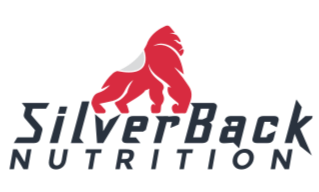Creatine, the supplement touted by gym bros and fitness gurus alike, promises muscle gains, strength boosts, and explosive workout performance. But with all the hype, a crucial question remains: are creatine gains permanent, or just a temporary flash in the pan?
Let's break down the science and dispel the myths.
Creatine: Friend or Foe?
Creatine is a naturally occurring molecule found in muscle tissue and produced by the body. Supplementing with creatine increases muscular stores, enabling faster ATP (energy) production during high-intensity exercise.
Gains Game: Temporary Buzz or Long-Term Build?
Here's the deal: initial creatine gains, especially the water weight increase in the first week, are temporary. Once your muscles reach saturation, water uptake plateaus. However, the strength and performance-enhancing effects can be permanent, provided you:
- Train consistently: Creatine alone won't magically sculpt you. Dedication to your workout routine is essential.
- Fuel your body: Don't neglect proper nutrition. Creatine helps maximize your efforts; make sure you're giving your body the resources to build muscle.
- Maintain creatine levels: Once you stop supplementing, Muscle stores gradually deplete. Consider long-term creatine use if you want lasting benefits.
Remember:
- Individuality matters: Some people respond better to creatine than others. Genetics and training history play a role.
- Safety first: Consult your doctor before starting creatine, especially if you have pre-existing medical conditions.
Creatine's Impact Beyond the Gym:
While muscle gains are often the focus, creatine offers other benefits too, including:
- Improved recovery: Faster muscle repair means bouncing back from workouts quicker.
- Enhanced brain function: Studies suggest creatine can improve cognitive performance and memory.
- Reduced fatigue: Feeling drained? Creatine can help you push through workouts with less exhaustion.
The Verdict: Embrace the Long Game!
Creatine's benefits, coupled with consistent training and proper nutrition, can lead to permanent gains in strength, performance, and overall fitness. While the initial water weight surge might be temporary, the true potential lies in your dedication to building muscle and pushing your limits. So, ditch the "quick fix" mentality and embrace the long game with creatine as your training ally.
Remember, consistency is key! Keep striving, keep fueling, and keep reaping the rewards of creatine's powerful potential.
Bonus Tips:
- Timing is key: Consider taking creatine pre-workout or post-workout for optimal absorption.
- Hydration is crucial: Creatine pulls water into your muscles, so stay hydrated to avoid dehydration.
- Explore different forms: Creatine monohydrate is the most popular, but other forms like Kre-Alkalyn exist. Experiment to find what works best for you.
Now go forth and conquer those workouts, knowing that with creatine as your partner, your gains can be anything but temporary!
FAQs
What happens when you stop taking creatine?
Body resumes natural creatine production, performance might dip slightly but gains stay with proper training.
Is creatine weight gain permanent?
Initial water weight gain is temporary, but muscle gains can be permanent with continued exercise and proper diet.
Is creatine bad for you?
No, it's generally safe for healthy adults, consult a doctor if you have pre-existing medical conditions.
Does creatine work?
Yes, it enhances energy production for high-intensity exercise, leading to strength and performance improvements.
Are creatine gains temporary?
Gains related to increased water weight are temporary, but muscle gains can be permanent with consistent training.
If you stop taking creatine will your muscles shrink?
Not necessarily, muscle loss depends on your overall calorie intake and training routine.

